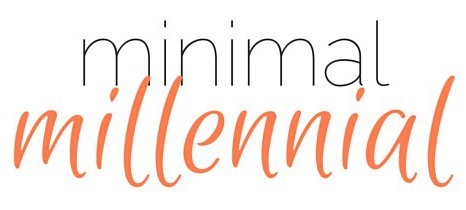I pulled the plug on my Facebook a couple months ago, and haven’t looked back.
I’ve talked about how much of a time-waster Facebook is in the past, but my usage was getting out of control.
I wasn’t using it because I was homesick. I wasn’t using it because I had nothing better to do. I wasn’t using it to even communicate.
Instead of using it to add value to my life, I let it do the opposite: I was using it to compare myself to the Facebook-version of my friends and acquaintances.
I always felt worse after visiting Facebook.
Why did it take so long to deactivate?
The excitement of Facebook really started wearing off after college three years ago. I realized that 90% of my Facebook friends were people I had no need to keep in touch with, personally or professionally.
I started unfriending and unfollowing people left and right. But did that stop me from stalking old crushes wedding photos? Nope.
It didn’t stop me from reading aggravating statuses (on purpose) and seeking out successful acquaintances, both which always made me feel bad. I was addicted to comparing myself with people on the internet.
We’ve all heard of FOMO, right? In hindsight, what was stopping me from deactivating my Facebook was actually FOFOMO.

What is FOFOMO?
The Fear of “The Fear of Missing Out” is what I’ve been calling my hesitation to quit Facebook.
I know it’s silly, but I was more afraid of how FOMO would affect me than I actually turned out to be afraid of missing out. I was anxious about how future me would deal with the anxiety of missing out on social updates.
Our generation has now been using “FOMO” as a new form of guilt or peer pressure. If you’re not where everyone else is, you should be afraid that they’re all hanging out without you.
If you’re not on Facebook, then how will you know your friends got engaged or started new jobs? If you subscribe to FOMO and let it consume you, you should be ashamed to have to ask.
For our generation, it’s unacceptable to purposely opt-out of what’s going on. It’s not “normal”.
I was afraid of the guilt and embarrassment that would come with ignoring my FOMO.
What has changed without Facebook?
My fear of FOMO turned out to be unwarranted. It turns out that I haven’t been afraid of missing out. I haven’t even missed out on anything important.
In fact, I’ve gained so much more now that I’m Facebook-free:
- I (literally) have added hours of valuable time to each week. This positive change happened immediately.
- I have fewer digital people/distractions in my life now, and my time online feels a lot less complicated.
- I feel kinder towards people in general. What ever happened to that girl who made fun of me in second grade? I can’t go to her profile anymore and see if she’s complaining or doing well for herself (both of which could frustrate me). Instead, I send a silent good wish her way and move on with my day.
You can quit too
The most difficult part is finally deciding to just do it. There are a few steps that can help you get there!
- Start unfollowing and unfriending people. Ask yourself these questions to decide what to do with each friend: Does this person need to read my updates or see my pictures? If they don’t, unfriend them. Do you need to read this person’s updates or see their pictures (but you still want to keep an online relationship with them)? If you don’t, unfollow them.
- Download all the information and pictures from your profile. It makes it easier to shut it all down.
- Try deactivating your account temporarily – you can set it to auto-reactivate after a certain number of days, which might help you decide if it’s the right choice for you.
- Open up new avenues with new purposes. I’ve started texting and calling my friends more, and I’m inching back in to Twitter. I’m interested in meeting like-minded simple living people , so say hello!
- Don’t announce it. I wanted to share my email or my Twitter profile with a little “seeya” announcement, but I realized that allowing myself to engage with people before leaving Facebook was as dangerous as having just one more drink. It’s best to tell your closest friends personally and then deactivate your account without posting a word about it.
How do you use Facebook? Is it a positive or negative tool in your life?
